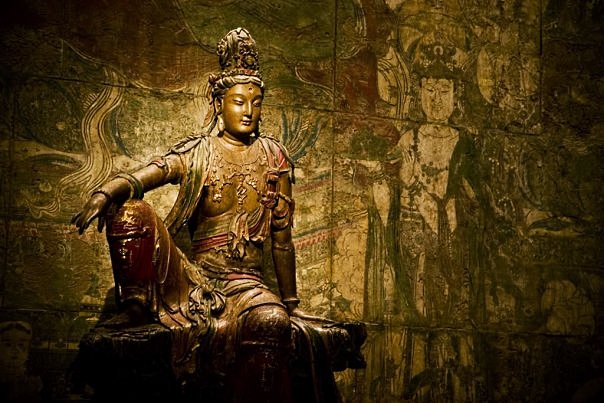David Loy, well-known Buddhist scholar and Zen teacher wrote an insightful essay on „Buddhists Must Awaken to the Ecological Crisis”.
Loy observes that for many modern Buddhists „the path is sometimes understood as a program of psychological development to help us let go of afflictive emotions and resolve personal problems.” But he adds „there is a difficulty if one believes that all problems are due to the way the mind works; the solution, then, is simply to change the mind rather than change the system.”

Loy argues that „While much of traditional Buddhism is concerned about transcending (in one way or another) this unsatisfactory world, much of modern Buddhism is about adapting to it better. In the first case, this world is the problem because it is a place of suffering, while in the other, one’s mind is the problem. These are differing perspectives on the path, but they can both have the effect of devaluing social and ecological engagement. In different ways, each is resigned to the way this world is—or seems to be—and therefore is not concerned about reforming it.” I made a similar point in my essay on “Does Western Buddhism Serve the Preservation of Capitalism?”
Loy emphasizes that Buddhism provides a wonderful archetype that can bring individual and social transformation together: the bodhisattva. „Bodhisattvas have a double practice—as they deconstruct and reconstruct themselves, they also work for social and ecological change. Actually, these are two sides of the same practice. As we start to see through the delusion of our separateness, our deep-rooted, self-preoccupied habits don’t suddenly disappear. We need to develop less self-centered and more compassionate ways of living in the world, but how do we do that? By devoting ourselves to the well-being of others, including the health of the earth’s ecosystems. Such concerns are not distractions from our personal practice but deeper manifestations of it.”
Will our efforts be in vain? Have we already passed ecological tipping-points? – asks Loy. His answer is „We don’t know, yet rather than being overwhelmed by the unknown, bodhisattvas embrace “don’t know mind,” because the task of the bodhisattva is to do the best one can without knowing what the consequences will be.”
Buddhist entrepreneurs in Bhutan, Europe, USA and elsewhere are working in this bodhisattva style to achieve the almost impossible: a sustainable and peaceful world.